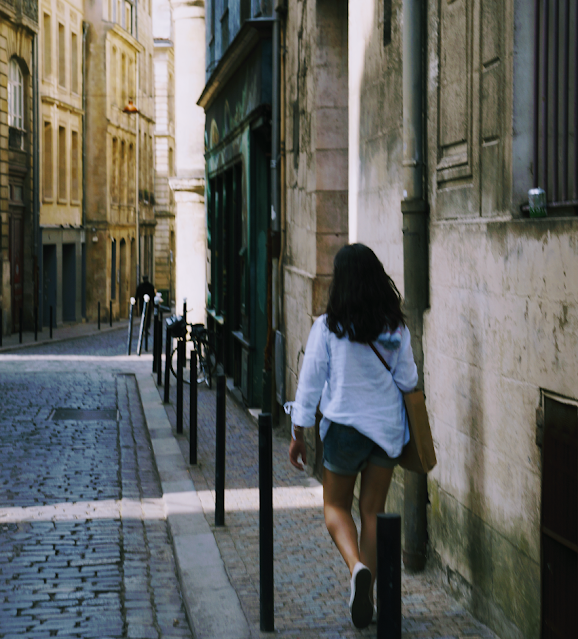Non-places
In December, Cambridge becomes empty. The streets lie deserted, the sound of suitcase wheels grows ever fainter until they vanish altogether, the services run on shorter schedules with decreasing frequency as Christmas approaches. There is an unsettling feeling that each person, day after day, moves on with their lives. As if there was another life, "the" life, in contrast to "this" life, reminding us of the inevitability of fate and that "this" life, too, will come to an end in about a few terms. One day, I too will wheel my suitcases on a moving cart to some other place, vrum.
As Javier Marías remarked about Oxford, "the inhabitants of Oxford do not belong to the world," and run in a city "that contains them, where they don't even exist in time." It brings to mind an infinite number of students who over time have successively occupied the same rooms in the colleges, cycling along the same paths, dining at the same long tables under an indistinct black gown until they are replaced the following year by an equal number of students exactly like them. And I can't forget (what I always recall when I pass by the porters): the story told by the same author about a college porter, nearly ninety years old, who no longer knew the year he was in, traveling back and forth in time each day. Some days he would wake up in 1947 and address the student before him by the name of a student from that bygone year, or he would wake up a bit later, in the sixties, and call the student by the name of another student from those times.
All of this occurred to me as I strolled towards a worship place named "Jack's Gelato," where, displeased with any of the flavors on the menu, I remembered hearing a girl once ask for the "secret flavor," an ice cream kept hidden, reserved only for those who request it, a shared secret between the shop owners and the local residents—or at least those local enough to be aware of the secret's existence. The ice cream seller smiled at me, with a sly look, and whispered to me very softly, "It's Pavlova”. And that was what we conspired the order to be.
As I returned home, ice cream in hand, I reflected on the concept of "non-places" that Marc Augé characterizes as transitional spaces. If someone tells you: to get there, you pass through "here" and "there," those "here" and "there" are mere tools to reach a place, mere passages. Marc Augé uses "non-places" to describe hotels, train stations, airports, large shopping centers, automated payment stations—places, he says, condemned to solitary individuality.
My mother doesn't need philosophers to put these definitions into practice. She always asks me, as soon as I arrive in a new place—while I am still unsure about where exactly I am—whether I've found my café. I grumble that no, I haven't found a café yet. I will, in due time. But what my mother is really asking is whether I've already transformed the non-place, whatever it may be, into a place. She does the same in other situations, like on car trips when she simply decides to turn right and leave her planned route to visit a place she saw advertised on a road sign, discovering, as it happened on a vacation day, an abandoned castle for sale. She appreciates it and returns to the road. However, upon returning, the place left behind is no longer a "non-place”.
Indeed, in "my" time, I will find my café, just as I currently have Iris. There, as soon as I reach the end of the queue, I see the staff mimicking ("one" or "two?") to know if I'll order a "single" or a "double" when I arrive at the counter. In the past, I used to order only a "single," and when I decided to change, they grumbled, "oh, isn’t it too early for this? In May, will it be a 'triple'?" On the other hand, Marc Augé is right: there are non-places that I have never managed to turn into places. In London, I never had my café because I made the mistake of going to Prêt - "to have in, or take-away? Next." Similarly, I never managed to turn the Padaria Portuguesa in Saldanha into a place, even though I went there more than once a day. Slips back and forth, everything done in a rush. No one ever noticed me there or recognized me.
Perhaps Marc Augé knows exactly what he means with his definitions, but it doesn't seem to me that there are specific characteristics that make places or people we casually cross paths with into non-places. Places with secrets that we know (like Jack's Gelato), those we have memories of, or where there are people who recognize us because, for example, they notice the amount of coffee we order, will never be non-places, even if they are at the “end of the world” or if we never return there. The airport café ceases to be a non-place when the waitress tells me that the juice I ordered is her daughter's favorite.
We can live a whole life in the same place, surrounded by non-places, or travel to different places every day, filled with places. One of my favorite books says that in a second life, we will only be with the people we paid attention to during the first life, those who meant something to us, with whom we felt identified. The college porter that Javíer Marías talks about, despite being confused, will have a second life filled with the presence of the students whose names he remembers. I too will have my Porters, the ice cream man, the lady from the café at the... airport. As a background scenario, the abandoned castle that my mother made me visit on vacation.

Comments
Post a Comment